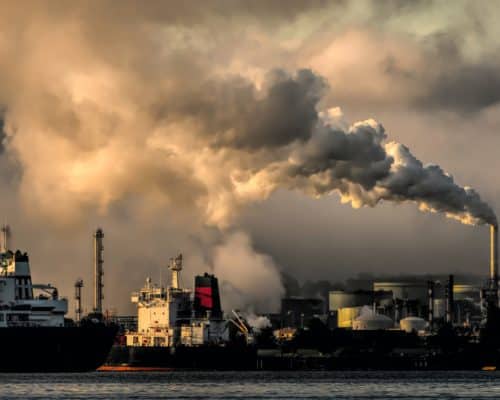Fossil Fuel
South Korean Green Taxonomy Declared ‘Gas is Green’
The government's decision to include gas in the Korean green taxonomy risks jeopardising the country's net-zero plans. Investors and environmental groups were quick to raise concerns, stating that, as a fossil fuel, gas carries high financial and climate risks. The question is will the Korean government listen?

Indonesia Bans Coal Exports for January – What it Means for the World
The effect of Indonesia's decision to ban January coal exports ripples through the leading Asian economies. Coal shipment bans from leading exporters are yet another reminder that fossil fuels are a dead end and surface an extensive universe of risks. However, they might prove detrimental in putting the industry to bed.
Japan’s Hydrogen Strategy – A Detour to Carbon Neutrality
A country as developed as Japan should be leading the global clean energy transition. Yet, the progress within its domestic energy market leaves a lot to be desired. What the country needs is to focus on measures aligned to the vision for a more sustainable Japan. And prioritizing renewables instead of hydrogen might be a good starting point.
LNG in Asia: A Threat to Financial Stability
Emerging Asia is increasingly looking towards building new LNG capacity. IEEFA's latest analysis reveals that the faith of the majority of these projects is determined even before the start of their development.
Coal In Indonesia – A Sticky Habit
Indonesia is the world's fifth-largest coal producer and largest coal exporter. Coal is a significant part of the economy and a substantial portion of its energy mix. Unfortunately, coal power has not provided electrification to many remote regions of the country and is a significant roadblock in global net-zero targets. Indonesia needs to reassess its energy policy.
Stranded Fossil Fuel Assets: A Looming Burden
Stranded fossil fuel assets pose a significant risk for the world. They will affect governments, lenders, and private institutions. The only way to limit this risk is to shift investment away from new fossil fuel projects and develop policies to support the change.
Clean Coal: Fact or Fiction?
"Clean coal" has been touted by many public organisations and private sector companies as an immediate solution for standard fossil fuels. In reality, data shows it does not compare to the emissions rates of renewable energy. While "clean coal" does remain a topic of discussion, many countries are starting to understand it is not a viable long-term solution.
Enabling a Fair and Just Energy Transition in Asia
Enabling a fair and just energy transition in Asia can't happen overnight as it will require collective efforts from governments, fossil fuel companies and stakeholders. While the journey will, indeed, be long and challenging, the most important thing, for now, is to make the first step. There are lots of examples to learn from already. The rest is a question of priorities.
Oil and Gas Sector: The Prospects of a Transition Fuel
The oil and gas sector has a critical role to play in the energy transition. They are the most well-positioned to develop and deploy large scale renewable energy infrastructure. Asian financiers, like the ADB and AIIB, have stated that they will support this transition by no longer funding coal and oil projects. Yet, they will continue to fund natural gas, as many see it as a transition fuel while renewable energy capacity increases.
Pathway to Zero Emissions for Hard-To-Decarbonise Industries
Decarbonisation of hard-to-abate sectors will be among the most essential tools to empower the world's emission reduction targets. While the progress had so far been stalling and challenges remain, the opportunities for a rapid transformation of hard-to-decarbonise sectors are there for the taking.
The Role of Coal in China’s Path to Net-Zero Emissions
China has publicly made their target to be net-zero emissions by 2060. In support of this goal, they have made significant strides in increasing their renewable energy capacity. Yet, at the same time, coal consumption has continued to rise. Without reducing coal consumption, achieving a net-zero economy is nearly impossible.
Case Study: Tsingshan Industrial Parks in Indonesia Post-China’s Coal Pledge
In light of the no-coal-power-overseas pledge by China’s President Xi Jinping and Indonesia’s commitment to no new coal power in the recent COP26, the industrial parks fueled by captive coal power in Indonesia, developed by China, face challenges and their future is dotted with question marks.
Natural Gas Outlook and Key Trends in Southeast Asia
Natural gas use in Southeast Asia will increase significantly over the next several decades. This is being fueled by governments and lenders alike. While this is a viable immediate alternative to coal and oil, it is not a long-term solution. Southeast Asian countries must continue working towards developing a robust renewable energy system.
Oil Majors Spend More on Spin, Less on “Green Hydrogen”
Several oil companies have stated goals to reduce their emissions. Often a key piece of this plan focuses on increasing natural gas production and investing in hydrogen energy. Unfortunately, there are many types of hydrogen energy and only one type is sustainable - green hydrogen. Currently, green hydrogen only accounts for a fraction of total hydrogen production.
Most Popular
Categories
-
9
-
31
-
127
-
4
-
17
-
39
-
51
-
14
-
15
-
10
-
23
-
6
-
155
-
162
-
23
-
1
-
22
-
30
-
36
-
66
-
14
-
74
-
40
-
17
-
6
-
28
-
21
-
85
-
245
-
20
-
35
-
31
-
9
-
41
-
35

